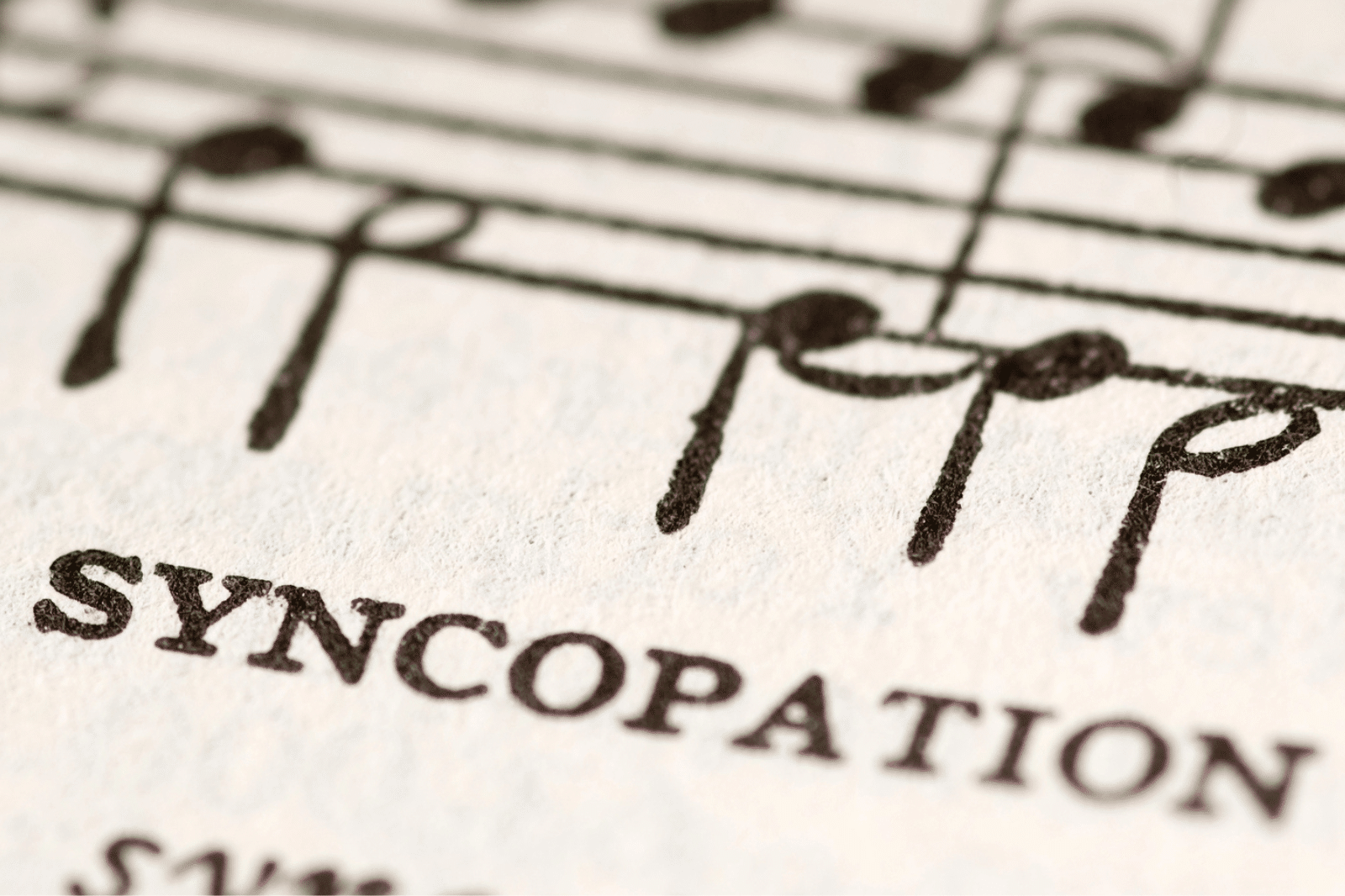What does it take to be a successful musician? Is it raw talent, technical proficiency, or something else?
To find out, we asked our audience to share their thoughts on the most important skills or traits for musicians. Here are the common themes.
1. Listening Skills and Having a Good Ear
The most common answer was to develop a good ear and listening skills.
They allow you to connect deeply with the music, understand its intricacies, and communicate effectively with other musicians.
One of the best ways to help get better is by doing ear training exercises. There are multiple ways to train this skill, but a few that I do are:
- Practice identifying notes by ear to improve your pitch recognition skills.
- Listen to intervals and practice naming them to hear harmonies.
- Identify chord types when you hear them (major, minor, diminished etc).
- Break down songs to understand their structure, chord progressions, and melody lines through analytical listening.
Honing these skills will help you to become a more well-rounded and adaptable musician.
Recommended Tool
If you want to improve your ear, I highly recommend checking out Tone Gym. I use it every day to practice my relative pitch and interval recognition. Use this link to save 20%.
IMPROVE YOUR EAR2. Dedication, Discipline, and Commitment to the Craft
Have you ever marveled at musicians who seem almost superhuman in their abilities? Well, behind those scales and solos are tons of time and tough love for practice.
Becoming a great musician isn’t just a walk in the park—it’s more like a marathon. It takes sheer dedication, unwavering discipline, and rock-solid commitment.
Set aside time every day to hone your skills. Remember, the greats played till their fingers bled—not literally, but you get the gist.
Keep a practice schedule as regular as your favorite TV show’s time slot. And stick to it even when the couch looks more appealing than the keyboard.
Set goals. Maybe you’re eyeing that complex Bach fugue or aiming to nail the blues scale at lightning speed. Whatever it is, set a goal for yourself and keep working towards it.
3. Patience and Perseverance
Have you ever wondered how your favorite musicians make it seem so effortless? You should know it’s not just “natural talent.” It’s a result of a lot of patience and perseverance over weeks, months, years, and even decades.
Have you heard of the “10,000-Hour Rule”? It suggests that mastery of a skill requires at least 10,000 hours of practice. Learning an instrument is no exception to this and will require a lot of patience.
- Set realistic goals – Small wins lead to big gains over time.
- Embrace the grind – Each practice session builds your skill.
- Learn from mistakes – Instead of getting frustrated, let errors be your guide.
Remember, whenever you feel like quitting, think about why you started. Your future self will thank you for the time you spent honing your craft today.
So, grab your instrument, and with each note you play, be reminded that patience and perseverance are your keys to getting better at your instrument.
Recommended Course
If you need help improving your practice routine, check out this course from Music Matters. It will give you the tools to get the most out of your practice sessions and improve your playing quicker.
IMPROVE YOUR PRACTICE4. Knowledge of Music Theory
Although there are a number of famous musicians who can’t read music, at least a basic knowledge of music theory will undoubtedly help you as a musician.
Understanding music theory is like knowing the grammar of a language. It’s all about the rules and tools that help you to communicate your musical ideas clearly.
Have you ever wondered why certain chord progressions just simply sound right? It’s music theory at work!
- Scales & Keys: Know your major and minor scales, as they’re the foundation for most music.
- Chord Progressions: Learn how chords move from one to another to create a flow.
- Harmony & Melody: Understand how these work together for a pleasing sound.
- Rhythm & Time Signatures: Get the timing right, and you’ll have your listeners tapping their feet.
Get My Music Theory Book
Want to learn more about music theory? I’ve written a beginner’s guide to music theory, which you can download here for only $5.
LEARN MUSIC THEORY5. Ability to Read Music and Sight Read
Understanding music theory and being able to read music are not the same thing. But, learning to read music, and more specifically, getting good at sight reading, is a really useful skill for musicians to learn.
If you’re at the beginning of your musical journey, you’ve probably picked up a piece of music and felt like it was a secret code or another language – and it is.
But, being able to read music notation is an essential skill for all musicians. It’s the blueprint that guides you on what, how, and when to play.
But what about sight-reading? Sight-reading is reading and performing music at first sight without preparation. It’s a real-time test of your reading proficiency and musicianship.
Here are a few tips to improve these skills:
- Start Simple: Begin with easy pieces to build confidence.
- Rhythm First: Work on nailing the rhythm before adding pitch.
- Daily Practice: Like any skill, the more you practice, the better you get.
- Use a Metronome: This will help you maintain a steady tempo.
- Scan Before Playing: Look for key signatures, tempo markings, and tricky sections beforehand.
Remember, patience is key. These skills are a marathon, not a sprint. Every time you decode a new piece, you’re a step closer to becoming a more capable and adaptable musician.
6. Creativity, Imagination, and the Ability to Improvise
Creativity and imagination are essential for transforming simple notes into captivating melodies. It’s what separates the greats from us mere motals.
The ability to improvise and spontaneously create music is crucial for musicians, especially in genres like jazz. But it’s important for all musicians, no matter their genre of choice, to practice improvising.
Practicing improvising stretches your imagination and allows you to experiment with sounds and rhythms. You’ll learn more about your instrument and uncover new ways to play it.
To nurture creativity, musicians should explore different genres, collaborate with challenging peers, and listen to diverse musical styles.
By embracing their unique creativity, musicians can push boundaries and create truly memorable performances.
7. Good Timing, Rhythm, and the Ability to Keep Tempo
Back when I first started playing jazz, I used to go to this jam session at a club in London called Charlie Wrights.
I was an 18-year-old fresh-faced student and not very good. But I knew it was important for me, so I would sit in with the band and get absolutely roasted by the other musicians. It was amazing but really hard.
The other musicians didn’t like playing with me, though, as I was terrible at playing in time – a key skill for a double bass player!
The best way to practice your time keeping skill is by using a metronome. Use one EVERY time you practice.
- Practicing scales? Use a metronome.
- Practicing a chord progression? Use a metronome.
- Practicing repertoire? Use a metronome.
It’s essential. You can pick one up from your local music store, but I’ve also got a free online metronome that you can use here.
8. Flexibility and Adaptability to Different Styles and Genres
I’ve noticed a lot of tribalism in terms of genres in music. People who like classical won’t listen to jazz. People who like heavy metal won’t listen to modern pop.
But, having flexibility and adaptability to different styles and genres is a great skill for musicians to have.
I’d recommend that you listen to different genres regularly. It’ll open up new techniques, new chords, new sounds and help you become more rounded as a musician.
Another good thing is to collaborate with musicians from other genres. Again, you’ll be exposed to a different way of thinking with regards to creating music and you’ll learn loads.
Remember, music is a language, and the more dialects you speak, the more conversations you can join.
9. Humility and the Willingness to Learn and Grow
Ever noticed how the best musicians often seem so down-to-earth? That’s no coincidence.
Humility is your secret weapon in the music industry. It opens up doors and keeps your mind receptive to new ideas. You might be talented, but there’s always room for improvement.
Some things to strive for in this context are:
- Self-awareness: Understand your strengths and weaknesses.
- Improvement and innovation: Stay abreast of new techniques and styles.
- Collaboration: Work effectively with others, valuing their input.
Ask yourself, are you open to constructive criticism? Do you seek feedback actively? This is what paves the way for growth. Keep in mind, every successful musician was once a beginner.
Remember, you’re never ‘too good’ to learn something new. Let your guard down, embrace the learning curve, and who knows? You just might surprise yourself with how much you can achieve.
10. Ability to Communicate Emotions and Connect with the Audience
Music is more than just playing the right notes in the correct order. At its core, it’s about communicating emotion, and this is what separates the good from the great.
Even if you’re just playing for yourself, imagine you’re performing the piece for an audience. Introduce dynamics, rubato, and soul into the music, and not only will it sound a lot better, but you’ll enjoy playing more!
A quick tip: Practice your performance by recording yourself to watch back later. This helps you see what your audience sees and sharpen your emotional communication skills. Remember, your goal is to make every note you play matter. This deep connection is the hallmark of a truly remarkable musician.






